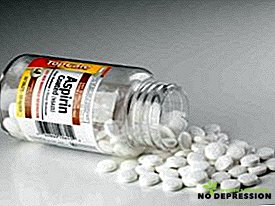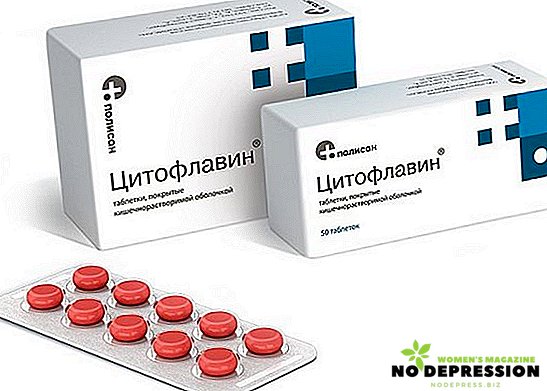Autoimmune pathologies are incredibly diverse. This is a group of diseases that are difficult or practically not treated. But the sooner symptoms are detected and treatment is started, the better the predictions will be.

Who can get sick?
Autoimmune diseases can affect anyone. But there are people who have an increased risk. The provoking factors include:
- Fertile age of women. Women more often than men suffer from similar pathologies that develop in the reproductive age.
- Hereditary diseases. Some autoimmune pathologies have a genetic nature, for example, multiple sclerosis. Often, different types of autoimmune diseases develop in several members of the same family. Hereditary predisposition is an important factor, however, other causes can lead to pathology.
- The presence of certain substances in the environment. Certain situations or harmful effects of the environment can lead to immune diseases or aggravate existing ones. For example, this is the sun, chemicals, infection.
- People of a particular race or ethnicity. For example, type 1 diabetes most often affects white people. But among African Americans and Spaniards, systemic lupus erythematosus is leading among autoimmune diseases.
Main reasons
Among lymphocytes, there is a special "caste" of cells. They are tuned to the protein of their own tissues, and when any part of our cells is dangerously modified, it becomes ill, dies, “orderlies” destroy the “garbage”. At first glance, this feature is useful. Moreover, lymphocytes are under strict control of the body. But it happens that the situation does not develop according to the scenario.
Causes of uncontrolled reproduction of aggressive lymphocyte orderlies can be divided into the following groups: internal and external. Internal reasons include:
- Type 1 mutations. In this case, the lymphocytes do not identify certain types of cells. If you inherit a similar genetic “baggage” in the cells, then the person is more likely to get the same autoimmune disease that was found in his relatives. And since the mutation concerns the cells of a particular organ or system as a whole, toxic goiter, thyroiditis and other diseases can be observed.
- Gene mutations of the second type. In this case, the orderlies' lymphocytes begin to multiply uncontrollably, causing systemic autoimmune diseases, for example, lupus. Such illnesses are always hereditary.
External causes:
- Very serious infectious diseases, after which the immune system begins to behave inadequately.
- Harmful effects of the environment, such as solar radiation.
- The trick of the cell-pathogens of the disease, which become similar to our own, only the sick. As a result, orderlies lymphocytes do not understand who is who, but act against all cells.
Major autoimmune diseases and their symptoms
Since autoimmune diseases are very diverse, it is very difficult to isolate common symptoms. However, such pathologies develop gradually, they pursue a person practically all his life. Often, doctors are at a loss, they cannot make a diagnosis, because the symptoms look dull, like many other diseases.
But the success of the therapy, the life of the patient depends on timely diagnosis, especially since many autoimmune diseases can be very dangerous.
Multiple sclerosis
It is a pathology of nerve cells, because of which a person begins to experience unusual tactile sensations, he sees worse. Sclerosis is most often accompanied by muscle spasms, memory problems.
Vasculitis
A dangerous autoimmune disease in which the circulatory system is affected. The vessels of vasculitis become fragile, the organs and tissues begin to break down from the inside. The prognosis for this pathology is unfavorable, the symptoms are pronounced, so the diagnosis is carried out without problems.

lupus erythematosus
Systemic pathology, harming virtually the entire body. The patient has pain in the heart, constantly tired, can not breathe normally. Red bulging specks of irregular shape are usually formed on the skin. They itch and become crusted.
Pemphigus
The main symptom is a huge skin bubble that is filled with lymph.
Thyroiditis Hashimoto
Autoimmune pathology of the thyroid gland. The main symptoms include: drowsiness, weight gain, fear of cold.
Graves Disease
In this case, the thyroid gland produces too much hormone thyroxine. Symptoms include:
- weight loss;
- heat intolerance;
- nervous irritability.
Scleroderma
Disease of connective tissue. Symptoms are diverse, for example, degenerative changes in the joints, blood vessels, internal organs.

Alopecia areata
In this case, the immune system attacks the hair follicles. Most often, this pathology does not affect the general state of health, but may adversely affect the appearance.
Antiphospholipid syndrome
This pathology is associated with damage to the inner lining of blood vessels. This may occur after repeated spontaneous abortions. Symptom: reticular rash on the knees and wrists.
Autoimmune hepatitis
Immunity for some reason begins to attack and destroy liver cells. This can cause compaction, cirrhosis of the body, liver failure. Symptoms include:
- weakness;
- increasing the size of the body;
- yellowness of the skin;
- itching;
- pain in the joints, abdomen;
- stomach upset.
Celiac disease
It is a gluten intolerant disease. This substance, which is contained in cereals, barley, a number of drugs. When people with this pathology eat food with gluten, the immune system responds to the lesion of the small intestinal mucosa. The main symptoms include:
- pain and bloating;
- constipation and diarrhea;
- weight loss;
- weakness;
- menstrual problems;
- itching and rash;
- infertility, the threat of miscarriage.

Type 1 diabetes
A disease during which immunity is attacked by cells that produce insulin. Without it, blood sugar levels begin to rise. This can cause damage to the eyes, kidneys, gums, teeth.
Symptoms include:
- constant thirst;
- frequent urination;
- feeling of hunger and fatigue;
- weight loss;
- loss of sensation;
- vision change.
Julian Barre syndrome
Immunity attacks the nerves that connect the brain and spinal cord. As a result, it is difficult to conduct signals. As a result, the muscles do not respond to brain signals. The disease progresses rather quickly, both halves of the body are often affected. Symptoms include weakness and tingling, paralysis in severe cases.
Hemolytic anemia
In this case, the immune system destroys red blood cells. If the body can not quickly produce the required number of red blood cells, as a result, there is insufficient saturation of the body with oxygen, the heart works with an increased load. Symptoms include:
- fatigue;
- respiratory failure;
- dizziness;
- headache;
- pallor;
- yellowness of the skin;
- problems with heart.
Idiopathic thrombocytopenic purpura
Immunity destroys platelets, which are necessary for the formation of bloody clots. Symptoms include:
- heavy menstruation;
- small red spots on the skin;
- bleeding;
- stomach ache;
- diarrhea
Inflammatory bowel disease
Chronic inflammatory processes in the digestive tract. The most frequent forms of this pathology are Crohn's disease and ulcerative colitis. Symptoms include fever, weight loss, fatigue, rectal bleeding.

Inflammatory myopathy
This is a group of pathologies that are characterized by muscle inflammation, weakness. The most famous two types of diseases that are common among women are polymyositis and dermatomyositis. May be noted:
- fatigue;
- fainting;
- muscle pain;
- difficulty swallowing.
Primary biliary cirrhosis
In this case, the immune system slowly destroys the biliary tract in the liver. As a result, bile accumulates in the liver and begins to damage it. The body is compacted, scars form on it, and in the end the liver stops working. The most well-known symptoms include:
- pruritus;
- dry eyes and mouth;
- fatigue
Psoriasis
The cause of the disease is that new skin cells grow too fast, piling up on the surface. The most well-known symptoms include:
- Red spots that are covered with scales. Most often appear on the head and elbows.
- Itching and pain are so strong that they do not allow to sleep, go about their business.
Rheumatoid arthritis
A disease in which the immune system attacks the shell of the joints all over the body. The following symptoms may occur:
- fatigue;
- fever;
- eye inflammation;
- subcutaneous pineal formations;
- pain;
- deformed joints.

What experts treat autoimmune diseases?
If you are going to visit a doctor, be sure to inform your therapist about this and take an extract from the medical history with the results of the tests.
Here are the main specialists involved in the treatment of autoimmune pathologies:
- Urologist. A doctor who deals with kidney problems.
- Rheumatologist. A doctor who treats arthritis and non-rheumatic pathologies.
- Endocrinologist Specializes in hormonal problems.
- Neurologist. A doctor who deals with the treatment of nervous diseases.
- A hematologist is responsible for blood diseases.
- Gastroenterologist - for the problems of the digestive system.
- Dermatologist. Carries out the treatment of skin, nails, hair.
- Specialist in physical therapy. It is necessary to help patients with weakness, limited mobility.
- Foniatr. A specialist who helps those who have problems with speech.
- Adaptologist. It is necessary to make your daily life easier, taking into account pain and other health problems.
- Psychologist. Allows you to find ways to cope with the disease on a psychological level.
What medications will help with treatment?
There are many types of drugs that are used in the treatment of such diseases. The choice depends on the diagnosis, symptoms, course of the disease. Therapy may be as follows:
 For relief of symptoms. Some people use OTC remedies for mild symptoms, such as Ibuprofen, Aspirin, if there is mild pain. Other patients who have more severe symptoms are likely to need prescription medications to relieve pain, depression, anxiety, rash, and better sleep. Some show surgical treatment.
For relief of symptoms. Some people use OTC remedies for mild symptoms, such as Ibuprofen, Aspirin, if there is mild pain. Other patients who have more severe symptoms are likely to need prescription medications to relieve pain, depression, anxiety, rash, and better sleep. Some show surgical treatment.- Replacement therapy. Introduction to the body of substances that it can not produce independently. For example, diabetes and thyroid disease can cause the lack of necessary substances in the body. So, in diabetes, you need to inject insulin. And specialized drugs will help restore the level of thyroid hormones.
- Suppression of the immune system. A number of drugs inhibit the activity of the body's defenses. For example, to control inflammation in the affected kidneys.
Autoimmune diseases and pregnancy
Pregnancy in women with similar pathologies should take place under the supervision of a specialist. Women with such diseases are capable of childbearing.
For example, a woman with lupus has an increased risk of preterm birth or stillbirth. Pregnant women, according to experts, note difficulty breathing in the period of carrying a child. In some diseases, the symptoms subside during this period, while others, on the contrary, increase.
Also during pregnancy it is undesirable to take certain medications for the treatment of autoimmune pathologies. To have a baby, you need to discuss this with a gynecologist before conception. They can advise either to wait for remission, or to change some drugs for safer ones.
You also need to register with a specialist who controls pregnant women with increased risks. Some women may experience problems with conception due to such pathologies.
What to do to feel better?
If you have a similar disease, you should follow a few simple rules. Your well-being in this case will be more stable:
- In the selection of food you need to take into account the nature of the disease. Eat more vegetables, fruits, whole grains, low-fat dairy products and vegetable proteins. It is necessary to exclude from the diet trans fats, saturated fats, cholesterol, salt and excess sugar. Following the principles of healthy eating, you will receive all the necessary substances from food.
- Regular exercise. Discuss with your doctor what physical activity is indicated for your illness. A gradual and gentle program perfectly helps people with long-lasting muscle or joint pain. Yoga and tai-chi can also help.
- Ensure a good rest. Rest allows the body to recover. If you sleep a little, stress levels and severity of symptoms may increase.
- Avoid stress. Stress and anxiety can cause exacerbation of a number of diseases. Therefore, we must learn to cope with nervous tension. This will help meditation, self-hypnosis, visualization - so you can relieve stress, cope with strong unpleasant emotions.


 For relief of symptoms. Some people use OTC remedies for mild symptoms, such as Ibuprofen, Aspirin, if there is mild pain. Other patients who have more severe symptoms are likely to need prescription medications to relieve pain, depression, anxiety, rash, and better sleep. Some show surgical treatment.
For relief of symptoms. Some people use OTC remedies for mild symptoms, such as Ibuprofen, Aspirin, if there is mild pain. Other patients who have more severe symptoms are likely to need prescription medications to relieve pain, depression, anxiety, rash, and better sleep. Some show surgical treatment.









